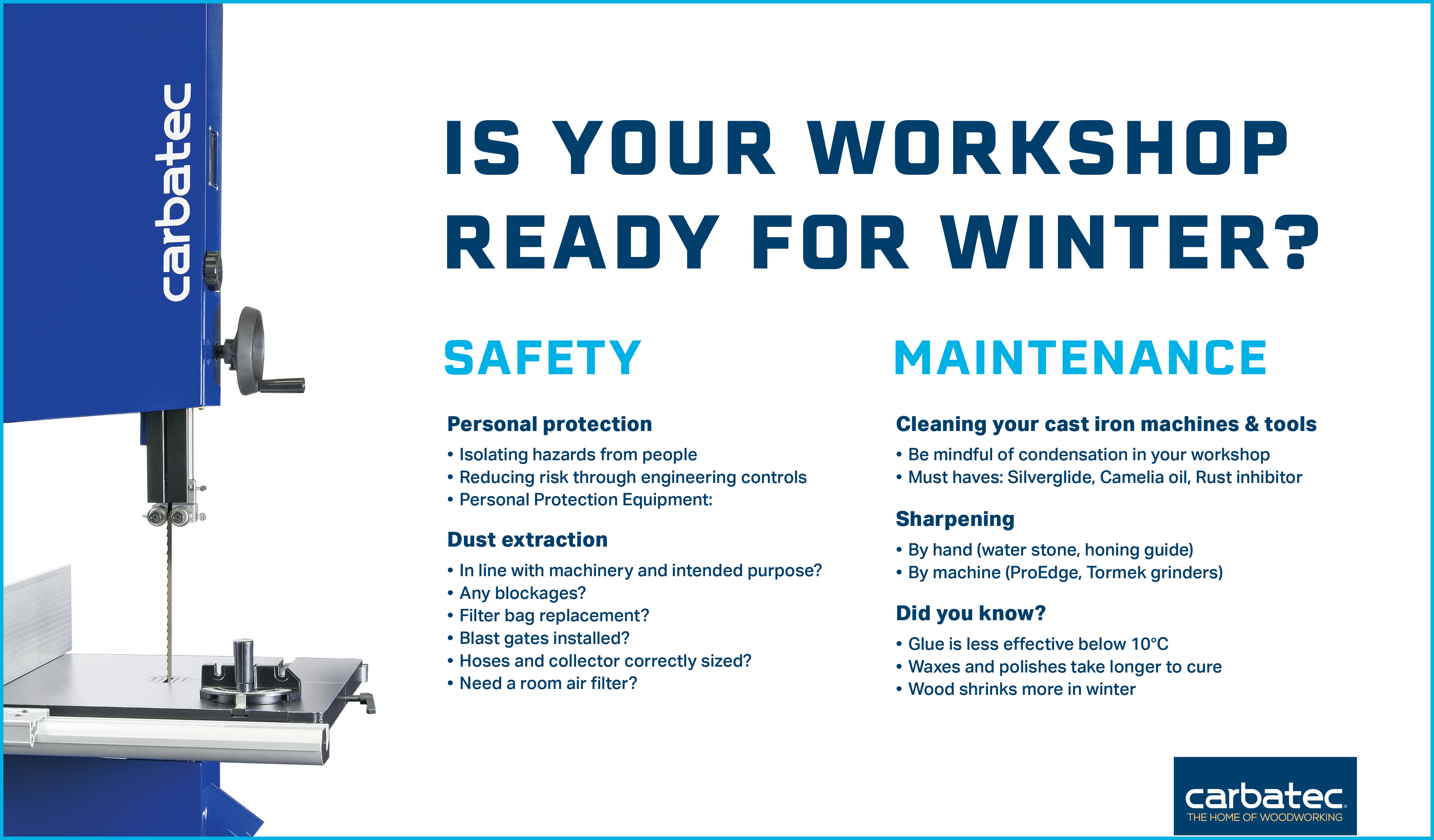
With the cooler weather comes more comfortable and enjoyable days in the workshop. Before you go, create your next masterpiece, make sure your equipment is safe with our helpful checklist.
PART 1: PERSONAL PROTECTION
With woodworking comes many risks, from the more obvious risks such as injury from spinning blades and knives, to the almost invisible threat of wood dust.
The most effective control is to eliminate the risk. If this isn’t reasonably practicable, then we need to minimise the risk by working through other alternatives such as:
- Substituting the hazard with a safer alternative (for example, upgrading your table saw with one that includes SawStop finger saving technology),
- Isolating the hazard from people (for example, keeping young children out of the workshop when woodworking)
- Reducing risk through engineering controls (for example, installing a safety enclosure around your CNC machine).
Because they rely on human behaviour and supervision, and don’t control the hazard at the source, administrative controls and PPE are the least effective at minimising the risk.
Safe Work Australia (viewed 17/05/2023). Managing risks. Retrieved from https://www.safeworkaustralia.gov.au/
Personal Protection is vitally important but is the last line of defence for safety.
Woodworking can be a messy pastime and reducing the amount of wood dust that you breathe in is critical to remaining healthy.
A high-quality dust mask can help keep you safe from the harmful particulates generated in your workshop.
Unfortunately, only wearing a dust mask is not enough, as when you remove your mask after cutting, harmful particulates are still floating in the air.
A high-quality dust mask, in addition to suitable dust control and extraction in your workshop, is always going to be the most effective combination.
Carbatec also offers a range of filters that, when paired with the appropriate mask, will help reduce odours as well.
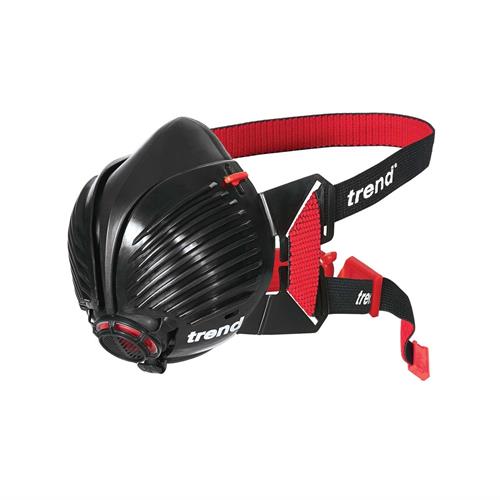
Click here to view our range of Dust Masks.
EAR MUFFS
The 'Managing of noise and preventing hearing loss at work Code of Practice' recommends the target ’in-ear’ noise exposure level is set below the exposure standard for noise, eg @ 80 dB(A).
Safe Work NSW (viewed 26/05/20). Hearing personal protective equipment (PPE) – The facts. Retrieved from https://www.safework.nsw.gov.au/resource-library/hazardous-manual-tasks/hearing-personal-protective-equipment-ppe-the-facts
If the noise level in your workshop exceeds 80 decibels, wearing ear muffs will help reduce the noise exposure level and the risk of hearing loss.
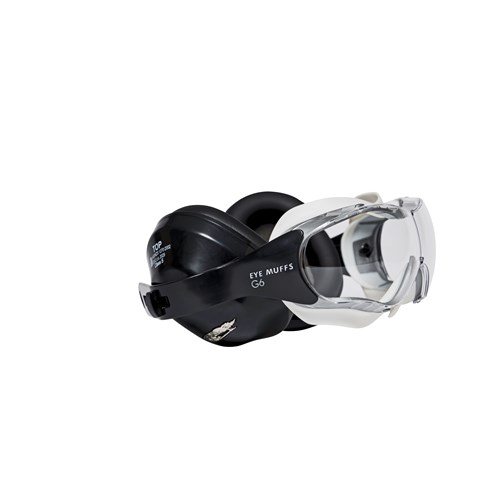
Click here to view our range of Ear Muffs
SAFETY GLASSES AND GOGGLES
When working with power tools, eye protection and tool guards are critical. Safety glasses and goggles help prevent particles from entering your eyes and damaging them.
Carbatec’s range of Safety Glasses and goggles includes models with a foam seal that prevents dust from getting into the lens and anti-fog lenses, different focus levels, as well as varying lens strengths to protect from varying levels of impact resistance.

GLOVES
Protective gloves should be chosen based on the relevant hazards in your workshop.
Carbatec offers a range of gloves that help protect the wearer from sharp knives, chisels, etc while carving and whittling. These gloves help to reduce the risk of cuts from sharp objects significantly.
Flexx-rap is also available, which helps prevent damage to hands and fingers when completing repetitive work.
Disposable gloves are also available, offering textured fingertips and long cuffs to prevent liquids from easily getting inside. These gloves are great for when applying finishes to your project.
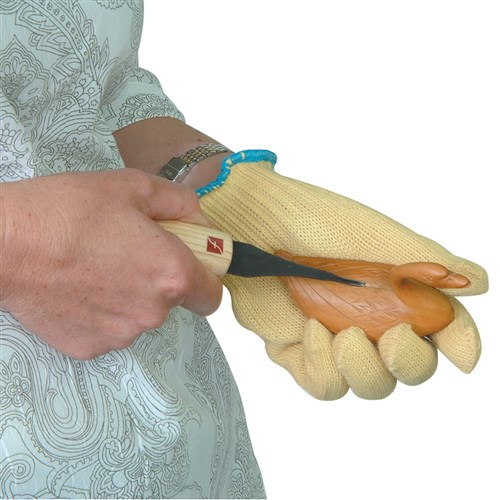
Click here to view our full range of gloves.
PUSH BLOCKS & STICKS
Instead of using your hands to push the timber into your table saw, jointer or router table.
Push blocks are a great control to reduce the risk of fingers coming too close to a spinning blade.
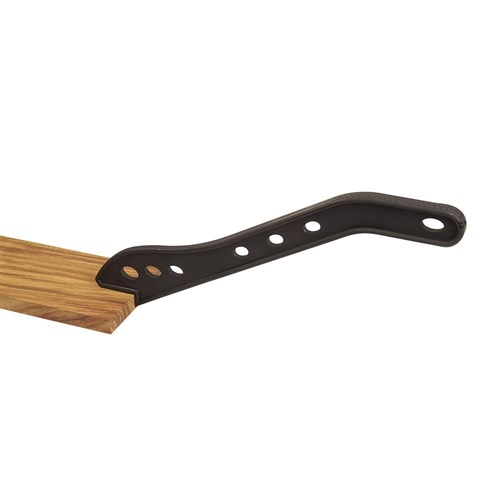
Click here to view our full range of Push Blocks & Sticks
FEATHERBOARDS
A featherboard is a hold-down safety device used to apply pressure against a workpiece, keeping it flat against a machine table or fence while the workpiece is being cut or otherwise machined.
It can be positioned close to the blade, applying pressure where it's most effective and least likely to be overcome by vibration.
Featherboards also provide safety and protection against kickbacks.
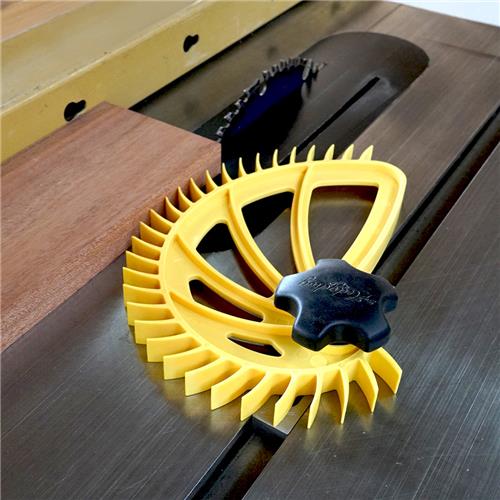
Click here to view our full range of Featherboards
PART 2: DUST EXTRACTION
Is your Dust Extraction set-up adequate and serviceable?
The dangers of wood dust are well documented. From a Health & Safety perspective, ensuring that the dust collection system installed matches the machinery and its intended purpose is important.
All woodworking machinery produces waste, which needs to be managed with the most appropriate equipment. Removing wood waste at the source is always the most efficient method.
Is your Dust Collection System performing efficiently?
Check that there are no blockages throughout your dust collector system. For it to work effectively, adequate airflow through the network must be adequate.
Check your filter bag or cartridge. The more air flows through the filter; the more air is pulled through your hose or ducting. Also, make sure you empty your collection drum or bag. Excess waste can lead to premature blocking of your filters.
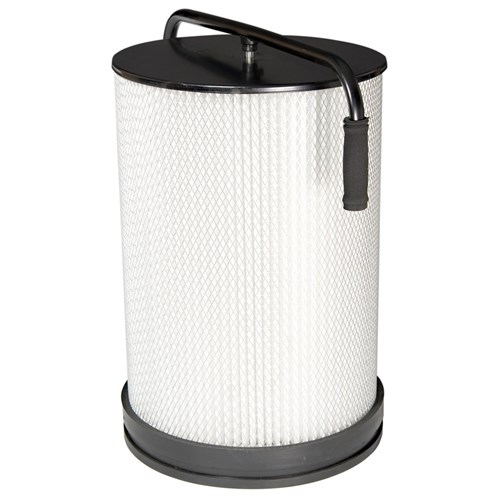
Click here to view our range of Filters & Collection Bags.
Are blast gates installed to achieve system balance?
If there are multiple lines on a dust collector, blast gates will allow you to shut off individual machines or an entire section of your system, isolating tools in use from those that aren’t. Doing this helps to consolidate or maximise airflow by diverting most of the suction to the active line. Remember to always have at least one line open at all times, and where possible, position the blast gate so it sits slides sideways rather than up and down. Vibrations during use can cause old blast gates to slide closed during use. Consider upgrading worn or old blast gates to new lockable metal ones. 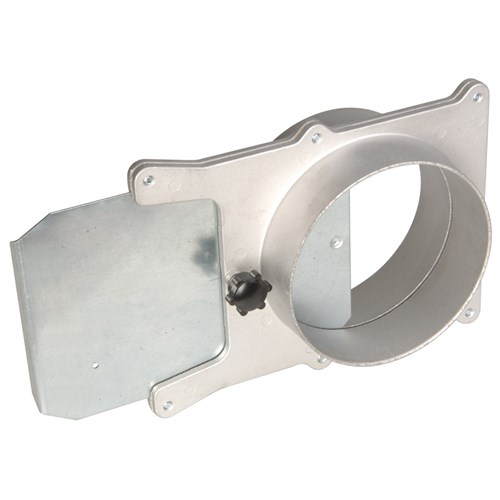 Click here Click here to view our selection of Blast Gates. Are hoses correctly sized?
The diameter of the hose can directly influence the performance of your dust collection system. Hoses that are too small in diameter or too abruptly reduced from a large diameter can result in poor airflow and potential blockages. Flexible hoses that are run over long distances will also result in poor airflow, and dust can build up in the hoses. Changing hose sizes and lengths (increase or decrease) affects system airflow and static pressure in different ways. Consider one or all of these improvements: Shortening and limiting the runs of flexible hoses (in favour of rigid ducting) can reduce your loss of airflow. Alter the layout of your workshop so the heavy waste producers are closer to your collector. Step down your hose diameters gradually and further away from the collector. This keeps a good balance between airflow and pressure. Avoid increasing hose diameters, as airflow and pressure are both reduced. 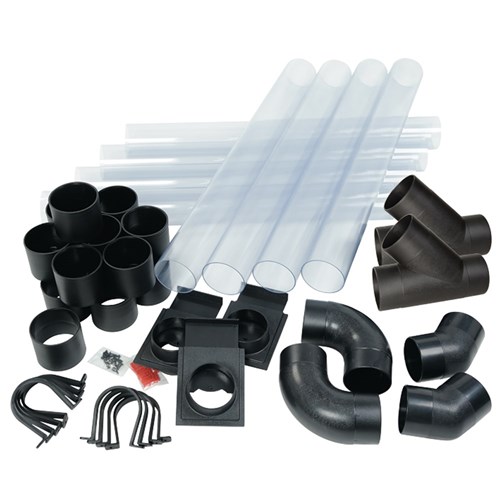 Click here Click here to view our full range of Dust Control Fittings, Hoses, Pipes & Accessories. Is the collector undersized?The 1HP under-bench unit dust collector was fine with your original mini lathe, but now you have a 380mm wide thicknesser, jointer, table saw and bandsaw. As your collection of woodworking machinery grew and as your dust network changed, the performance of your collector was constantly being affected. Before adding another machine to your workshop, consider whether an upgrade to your dust collector is necessary. If you have multiple machines, or if you have a network of ductwork for your workshop, the very minimum of 1200CFM (roughly a 1500W or 2HP Dust Collector) would be recommended. As you add more machines to your workshop, increase and possibly future-proof your system by selecting a higher-performing collector. Carbatec offers a wide range of dust extractors, cyclone extractors, cyclone separators, flexible PVC, rigid ducting, PVC and metal fittings to suit your every need. 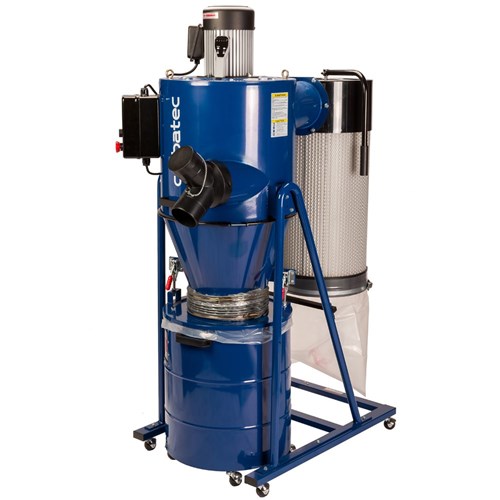 Click here Click here to view our range of Dust Extractors The last line of defence.
A simple room air filter in your workshop does an amazing job of changing the air several times per hour. Specifically designed to reduce those ultra-fine dust particles that seem to hang in the air for hours. These fine particles are the ones that wait patiently to drop on your fresh coat of pour on gloss, or laquer. A room filter can effectively reduce these by drawing air in through a two-stage filter, providing filtration of up to 85% of 1-micron particles. Remote and timer control, quiet and hardworking. A simple installation with immediate results. 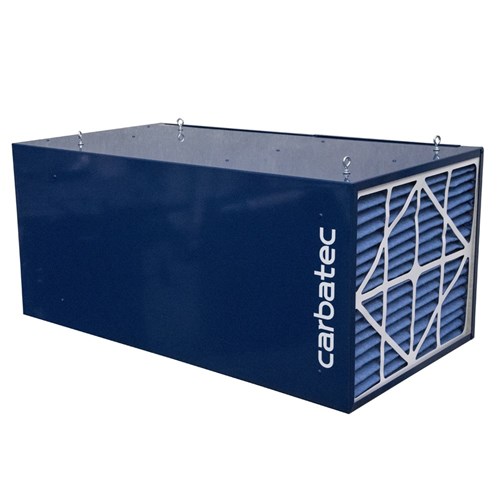 Click here Click here to view our range of Air Filters
|